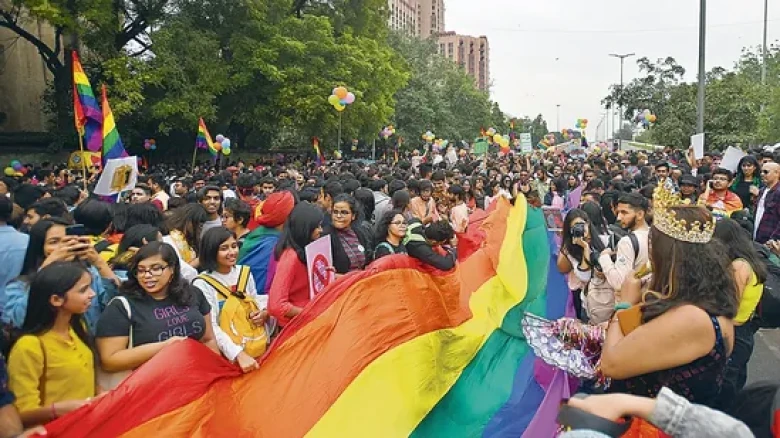Regional

The legalization of same-sex marriages in India has been opposed by three states, including Assam...
Digital Desk: The legalization of same-sex marriages in India has been opposed by three states, including Assam. The three states—Assam, Andhra Pradesh, and Rajasthan have expressed their opinions in response to a letter the Centre sent on April 18 asking all states for their opinions on the issues highlighted in the same-sex marriage case before the Supreme Court.
The state of Assam stated that the legalization of marriage for same-sex couples and the LGBTQIA+ population calls into question the state's marriage and personal laws.
It stated that, while the issue calls for broad discussions on multiple facets of the institution of marriage as a social phenomenon, the legal concept of marriage has been that of an agreement or contract between two people of opposite genders.
Further, it pointed out that legislation is the prerogative of the legislature, both at the centre and in the states, and that the courts should assess legislative matters in accordance with the fundamental principles of our democratic structure.
The letter further said that marriage, divorce, and ancillary matters come under entry 5 of the concurrent list of the Constitution and are the domain of the state legislature.
In light of this, the Assam government disputed the petitioner's stance on the matter and asked for more time to express its own views.
Meanwhile, the state of Andhra Pradesh stated that it had spoken to religious leaders from different religions in the state, and all of them were against same-sex marriages being legalised.
Thus, it stated that it was against same-sex marriage and/or people who identify as themselves as LGBTQIA+.
On the other hand, the Rajasthan government said that according to a report from the Department of Social Justice and Empowerment, Rajasthan, same-sex marriages would lead to imbalances in the social fabric that would have long-reaching effects on the social and family system.
In this regard, the administration sent letters to all district collectors in the state to solicit their opinions. The collectors stated that there should be no provision for same-sex marriages because the practice is not common and is considered unpopular, the state said.
Further, it pointed out that if the general public was in support of same-sex marriages, the State legislature would have addressed the issue.
Hence, the state opposed same-sex marriages but stated that it was not sinful for two homosexual people to live together.
Leave A Comment